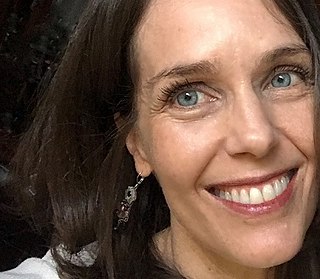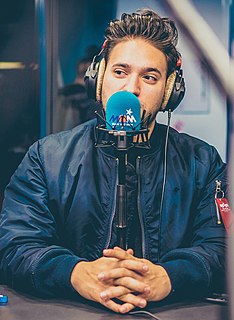A Quote by Khaled Hosseini
I grew up with some kind of storytelling instinct, and when I write, my default setting is to find a story and then to tell it. It's the only way I know how to write.
Related Quotes
I always knew from the beginning that this was the only way to write Then We Came To The End - that it had to be in first - person plural if it was going to illustrate how the individual becomes part of the collective. I had no interest in writing the book in a more conventional voice. It goes back to that fascination I had with telling a story in multiple ways. It was the only choice I gave myself, really - I said "This is it, pal. If you can't tell a story this way, you're going to have to abandon the book. Write it this way or give up."
I think that the way that I write stories is by instinct. You have some basic ideas - a character, or an image, or a situation that sounds compelling - and then you just feel your way around until you find the edges of your story. It's like going into a dark room... you stumble around until you find the walls and then inch your way to the light switch.
I find that I end up liking songs if I really have an idea of something I wat to write about-some problem in my life or something I want to work through; if I don't have something like that at the root of the song, then I think I end up not caring about it as much. I gravitate towards some kind of concept or idea or situation that I want to write about. Very often I have to write, rewrite and come at it from an opposite angle...and I end up writing the opposite song that I thought I was going to write.
My theory for nonfiction is that nobody can be free of some kind of conceptions about whatever story they're writing. But if you can find a way to build those into the story, then the story becomes a process of deconstructing and heightening and sometimes changing those notions and that makes dramatic tension. The initial statement of your position, and then letting reality act on you to change it, is pretty good storytelling.
I fundamentally believe that no one can teach you how to write - finding out how to write a story is part of the process of creating a story - but you can really learn through exposure to different writing, to different art forms, to different modes of storytelling, and with mentors who are able to get you to step outside your comfort zone.
Do you know how some people can do anything?” “What do you mean?” “I mean, you tell them to write a tune, they give you a symphony right there. You tell them to write a book, they write you a novel in a day. You tell them to move a spoon without touching it, they move it. If they want something, they make it happen. Miracles, almost.







































